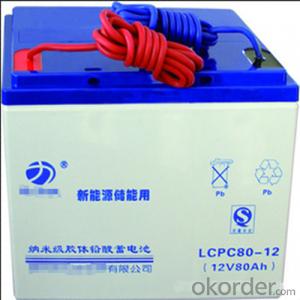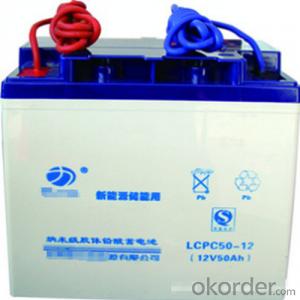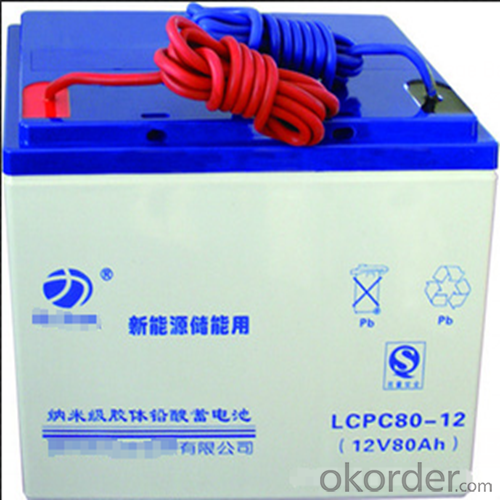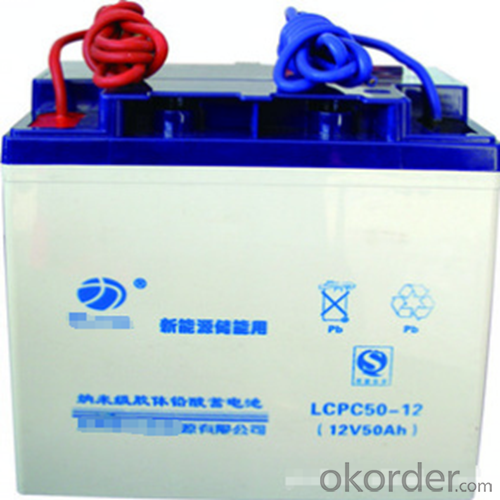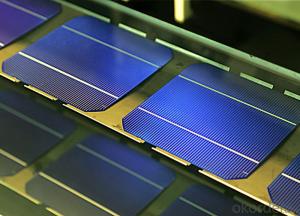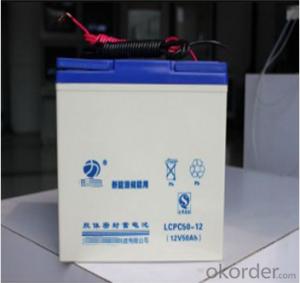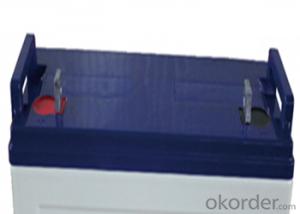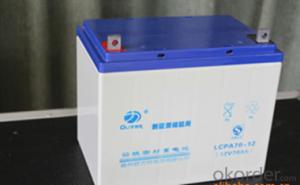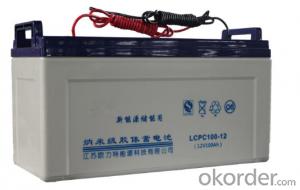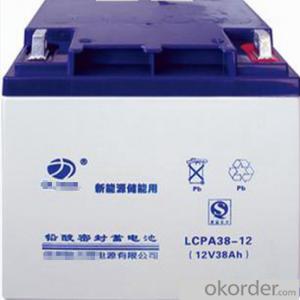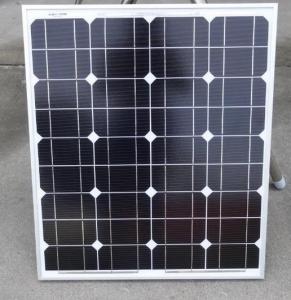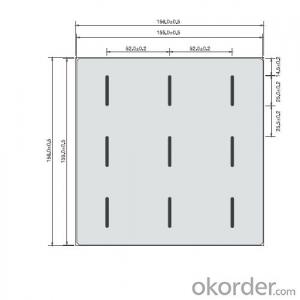GaAs Solar Cells Compatible Storage Battery LCPC Series 12V 80Ah
- Loading Port:
- China main port
- Payment Terms:
- TT OR LC
- Min Order Qty:
- 1 pc
- Supply Capability:
- 200000 pc/month
OKorder Service Pledge
OKorder Financial Service
You Might Also Like
Structure of Product Description
What is the product?
· Precision explosion relief valve shall be adopted
· Advanced wrapping technology and assembly technology
· Designed life is fifteen years,excellent performance of battery in low temperature and superiority in consistence and stability
· Can be used at vertical or horizontal orientation
· Balanced design for both floating and cyclic operation
· Low self-discharge rate and long shelf life
· Connecting terminal adopts stainless steel bolt,thus it has the characteristics of high strength and non-deforming
· Design with patented corrosion resisting alloy and thickened plate
What is the purpose of the product?
Data Centre (High Rate UPS)
Telecommunication
Banks & Financial Centre
Hospital& Testing Laboratories
Power Generation Plants
High Power Backup Supply
Design with patented corrosion resisting alloy and thickened plate
Product Advantage
Low self discharge:When using high purity raw materials, which can hinder the cathodic reduction water diffusion effect and inhibition of PBO spontaneous reduction pirated, so the uniformity;
Environmentally friendly:Because of electrolyte and effective adsorption in the gummed paper, any Angle using no liquid electrolyte flow out
Long service life: stop layering and sulfate reducing adhesive and plate separation and provide effective oxygen compound channels, more than 20% higher than the life of the lead-acid battery life from a year earlier, the design life for more than 10 years
Main features of the product:
*safety and reliable
*environmental friendly and fast delivery
*low self diacharge
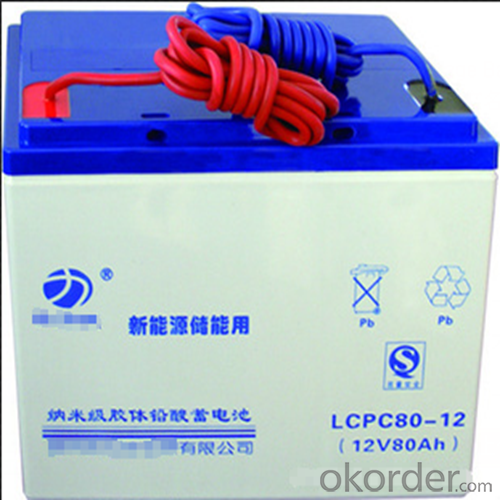
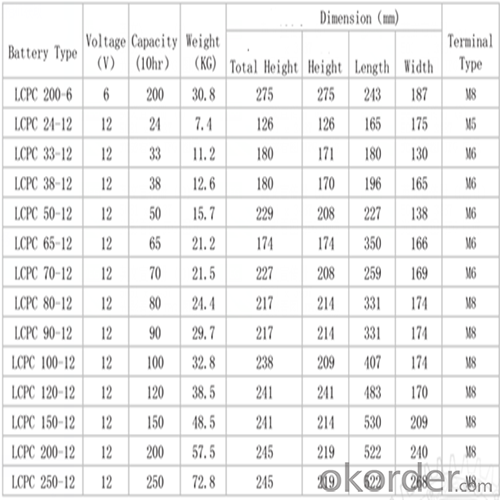
FAQ:
*Question:How long does the product can service?
Answer: It can serice above ten years.
*Question:What conditions should it store?
Answer:It should be in a cool, dry environment.
*Question:What do you have some certificates about gel battey?
Answer:We have the ISO9001 quality management system certification, UL certification, CE certification, 12 v Jin Tianyang certification, the national quality inspection report, export quality license.
- Q: How are solar cells used in spacecraft?
- Solar cells are used in spacecraft to convert sunlight into electricity, providing power to the various systems and instruments on board.
- Q: Can solar cells generate electricity during a blackout?
- No, solar cells cannot generate electricity during a blackout because they rely on the power grid to function.
- Q: Can solar cells be used for powering sports stadiums?
- Yes, solar cells can definitely be used to power sports stadiums. Solar panels can be installed on the rooftops of stadiums or in nearby areas where they can harness sunlight and convert it into electricity. This renewable energy source can help reduce carbon emissions, lower energy costs, and provide a sustainable power solution for sports stadiums.
- Q: Can solar cells be used in oil and gas exploration?
- Yes, solar cells can be utilized in oil and gas exploration. While they may not directly contribute to the exploration process, solar cells can be employed in supporting infrastructure and operations. Solar-powered equipment such as remote monitoring systems, communication devices, and data collection instruments can be used in remote or off-grid locations, enhancing efficiency, reducing reliance on fossil fuels, and minimizing environmental impact.
- Q: What is the effect of dust or dirt on solar cell performance?
- The presence of dust or dirt on solar cells can significantly reduce their performance by blocking sunlight from reaching the cells, thereby reducing their efficiency in converting sunlight into electricity. The dust or dirt particles act as a barrier, preventing the photons from reaching the semiconductor material within the solar cells. This decreases the amount of electricity generated, resulting in a decrease in overall power output. Therefore, regular cleaning and maintenance of solar panels is essential to maximize their performance and ensure optimal energy production.
- Q: What is the working principle of a solar cell?
- The solar cell works in the way that use the sunshine as the resources to generate the power for us to use.
- Q: Can solar cells be used in desert areas?
- Yes, solar cells can be used in desert areas. In fact, desert regions are ideal for solar energy production due to their high levels of sunlight and low cloud cover. The arid conditions also help keep solar panels clean and free from debris, maximizing their efficiency.
- Q: How much does a solar cell cost?
- Figuring out exactly the cost of the solar system you have can take a little detective work.
- Q: How are solar cells made?
- Solar cells are typically made using a process called photovoltaic (PV) technology, which involves the assembly of semiconductor materials, usually silicon, into thin layers. The silicon is purified and then shaped into wafers, which are then treated with various dopants to create the desired electrical properties. Metal contacts are added to these wafers, and the cells are encapsulated with protective materials. When sunlight hits the cell, the photons from the sunlight create an electric field across the layers, generating electricity.
- Q: Can solar cells be used underwater?
- No, solar cells cannot be used underwater as they rely on sunlight to generate electricity.
Send your message to us
GaAs Solar Cells Compatible Storage Battery LCPC Series 12V 80Ah
- Loading Port:
- China main port
- Payment Terms:
- TT OR LC
- Min Order Qty:
- 1 pc
- Supply Capability:
- 200000 pc/month
OKorder Service Pledge
OKorder Financial Service
Similar products
Hot products
Hot Searches
Related keywords
